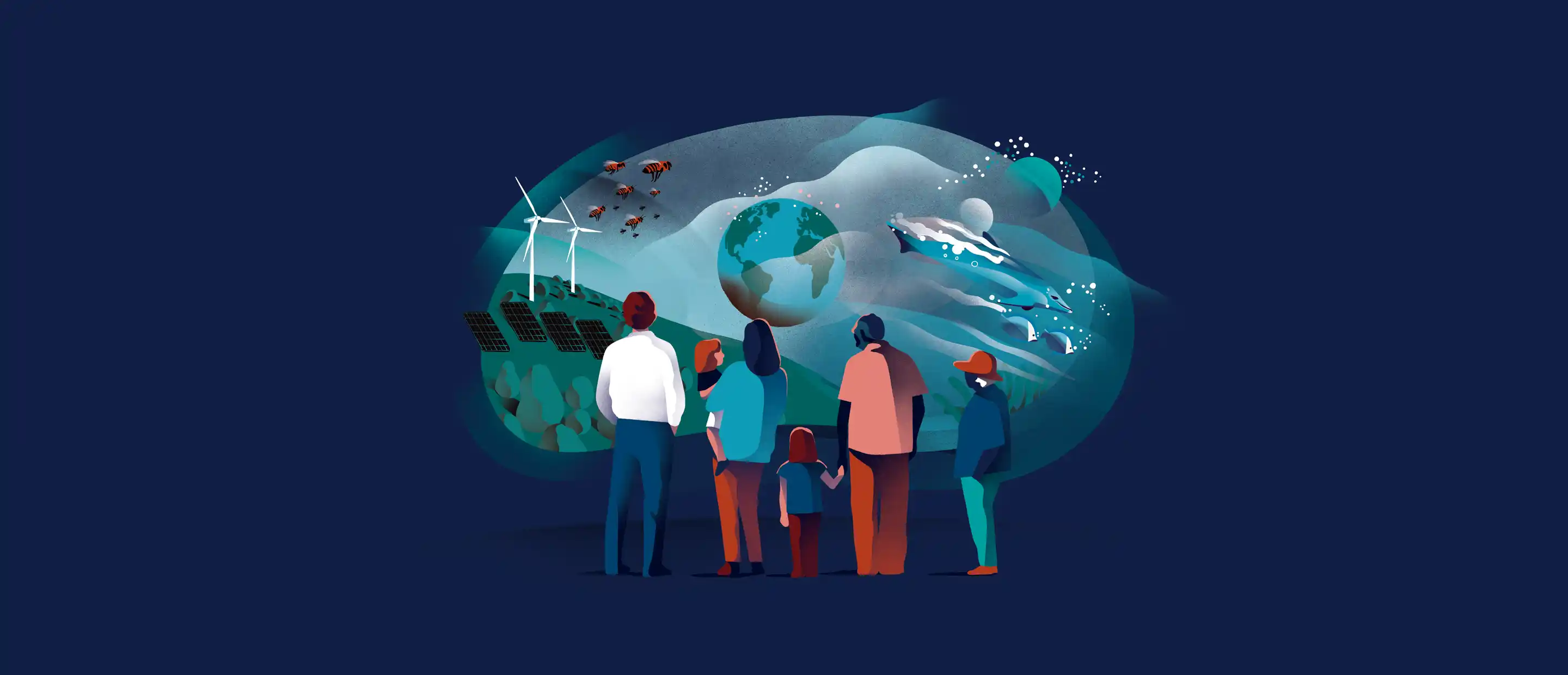The vulnerability of the Maldives to sea-level rises and pollution has brought about the early adoption of a circular economy, with its concept of zero waste. This sustainable approach is a key part of the blue economy and offers great opportunities for future innovation and business, as Emily Chasan explains in LUX magazine.
The Maldives might be famous for its sandy beaches, but the small Indian Ocean nation is also being recognised for its efforts to reduce plastic waste. The Maldives Republic is uniquely working toward restoring its culture to support a fully circular economy, in which nothing is wasted and there is less reliance on toxic plastics that could end up in the oceans. The country’s plan, announced at the UN in 2019, is to completely phase out single-use plastics by 2023. Its luxury resorts have already dropped plastic straws and toothbrushes and replaced plastic bottles with reusable glass ones.
Its journey began in 2016 when the Maldives joined with non-profit Parley for the Oceans to implement pollution reduction strategies. The country has launched education initiatives at more than 70 schools to teach children how to reduce plastic use, created a recycling innovation lab, and pushed efforts to rid the country’s waters of plastic fishing nets (native Maldivian fishers don’t use nets). The country has established clean-up operations along the coastline, and sends collected waste plastic abroad to be turned into new products. The goal is to create a truly circular economy: intercept plastic heading to the ocean and redesign the small island nation’s society so it uses less plastic in the first place.
“The ocean needs eco-friendly materials and we need to reduce the use of plastic as much as possible,” Maldives president Ibrahim Mohamed Solih said at the 4th Sustainable Development Goals Business Forum at the UN in New York in 2019. The circular economy is a key part of creating a sustainable blue economy, and a big opportunity for shifting investment into supporting activities on land that improve ocean health.
“The blue ocean economy is an example of how overall economic structures can be designed,” says Markus Müller, Global Head of the Chief Investment Office at Deutsche Bank’s International Private Bank. “And the circular economy was the original idea behind everything we are doing with the blue economy.” Applying circular thinking to the ocean means not just thinking of it as a resource to exploit, but seeing its sustainability as a value that gives people “the opportunity to fish,” Müller said.
Switching to circular economy systems also has the potential to reduce the impact of industrial production on climate change and improve biodiversity, particularly by reducing ocean pollution. According to the Ellen MacArthur Foundation, which advocates for a circular economy, applying the principles of such a new economic system to industries such as cement, aluminium, steel, plastics and food could eliminate about 9.3 billion tonnes of greenhouse gases by 2050, the equivalent of reducing all transport emissions to zero.
The circular economy of the future depends on rethinking a culture of disposability and logistics systems in order to capture, reuse and recycle more waste. It requires planning for a product’s end of life from the outset, designing items so that, once they have been made and used, their constituent materials can then be recovered and recycled, ideally into new versions of themselves. Today’s economy by comparison is largely linear, where items are not designed to be kept in use but are made, used and then discarded.
For investors, there are significant opportunities in the improvement of supply chains and waste management, the development of new materials such as bioplastics, the increased use of refillable packaging, and new digital technologies aimed at reducing waste.
Recycling systems around the world are still reeling from China’s decision in 2017 to ban imports of contaminated recyclables. The country had been a key export market for waste paper and plastic from America, Europe and Australia because it was willing to pay for these materials. The sudden change revealed a gaping hole in the recycling infrastructure of western economies and companies, and investors are rushing to build new systems for local recycling as sustainability-minded consumers and regulators are demanding more use of recycled content. But they soon may have no choice but to change.
In March, the European Commission released a new action plan for a circular economy, committing to place only “circular, safe and sustainable” products on the market for purchase in the EU by 2030. Under the plan, the EU would work to reduce excessive packaging, mandate the use of recycled plastic, push for additional taxes for waste headed to landfills and require manufacturers of products from cars to batteries to increase the amount of recycled content they use.
US legislators also introduced a first-of-its-kind bill in February 2020 aimed at reducing single-use plastics on a national scale, requiring companies to pay for plastic waste clean-up and use more recycled content. Despite some opposition, it shows the ways in which governments might formally support the creation of a circular economy.
Investors might want to prioritise waste reduction and reuse models over recycling efforts, according to Müller. “Reusing things will always be beneficial,” he says, “and investments linked to those kinds of innovative ideas are the ones you’d like to have in your portfolio.”
This article first appeared in the Summer 2021 issue of LUX Magazine. This issue features in the third in a series of Deutsche Bank Wealth Management/LUX supplements about our ocean and its importance to both the environmental and economic wellbeing of the planet.



